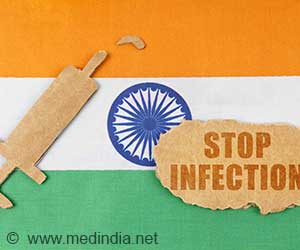India's Biocon Ltd says it has received encouraging results from the clinical trials on its oral insulin product, IN-105.

IN-105 is a new molecule that has been developed by Biocon at its facilities in Bangalore.
If successful, the product would make it feasible for diabetics to be given a treatment in tablet form rather than through injections. The molecule is stable at room temperature, according to the company, making it easy to store.
Biocon also said that it has recently obtained approval from the Swedish medical authorities to carry out early stage human studies for this molecule in Sweden. This will be the first such clinical trial outside of India for IN-105, it said.
Many people who are about to start on insulin injections inquire about alternatives to self injection. Insulin therapy has been around for eighty years, yet alternative methods of insulin delivery have been slow to emerge. The reason for this is that insulin is easily broken down by most methods tested and doesn’t really work that well.
Insulin is a protein which can be digested just like other proteins in the food. The stomach is a very acidic environment and proteins are quickly denatured (rather like milk ‘curdling’). The presence of food will also influence absorption and make a dose less predictable. This is why oral insulin has never been successful.
Biocon's oral insulin candidate has polymers added at specific locations in the B chain of the insulin to prevent insulin from getting destroyed in the stomach. 'It [IN105] was found to be more bioactive than HIM2 in animals,' Shrikumar Suryanarayan, President (Research and Development), Biocon said, 'and this could be due to several factors — better resistance to enzymatic digestion or improved absorption in the stomach or intestine.'
HIM2 showed positive results in human clinical trials. It was found that the digestive enzymes did not destroy oral insulin. '... HIM2 is as effective as subcutaneous insulin in controlling postprandial glycemia ... ' noted a paper published in Diabetes Care in 2003. The subjects studied were those with Type II diabetes. HIM2 was not commercialised though.
While pancreas is where insulin is produced, liver is where glucose is stored as glucogen and released into the body as glucose as and when needed.
'When the liver shuts off glucose production depends on the amount of insulin present in the liver,' explained Dr. V. Mohan, Chairman, Dr. Mohan's Diabetes Specialty Centre, Chennai, southern India.
Liver produces more glucose when fasting and in the postprandial condition, insulin signals the liver to shut off and stop producing glucose. So by making oral insulin available to the liver through the stomach, the drug will be able to achieve better glucose control.
'Oral insulin is theoretically far superior to injection,' Dr. Mohan emphasised, 'injections are not the right way to control blood glucose.'
Obviously there is a lot of excitement in Biocon circles. 'Oral insulin is like the Holy Grail,' Kiran Mazumdar-Shaw, Chairman and Managing Director of Biocon has said. Sales of the product may exceed $10 billion globally, she estimated. 'We're very confident that we can make it work, and indeed if that works it will be an absolutely dislocating technology.'
'Biocon has now become the largest patent holder by doubling the number of patents,' she said after the acquisition of Nobex.
'We have paid millions of rupees for a bunch of papers,' Shrikumar Suryanarayan, said. 'It's a great asset provided you know how to translate them into drugs.'
And at a time when India is taking baby steps in drug discovery and development, acquiring the IPs of Nobex has helped Biocon to cut short the time required for taking drugs from the laboratory to the market.
Source-Medindia
 MEDINDIA
MEDINDIA
 Email
Email










